Yesterday Plos ONE published our latest study on the health system in Nepal under the title ‘Barriers in accessing family planning services in Nepal during the COVID-19 pandemic: A qualitative study‘ [1]. This qualitative study, in an Open Access journal, explores what sorts of barriers are faced by women needing family planning services in Nepal during the pandemic. It was conducted in five districts of Nepal. Telephonic in-depth interviews were conducted with 18 women of reproductive age (18–49 years) who were the regular clients of family planning services. Data were coded deductively using the preexisting themes based on a socio-ecological model (e.g., individual, family, community, and health-facility levels).
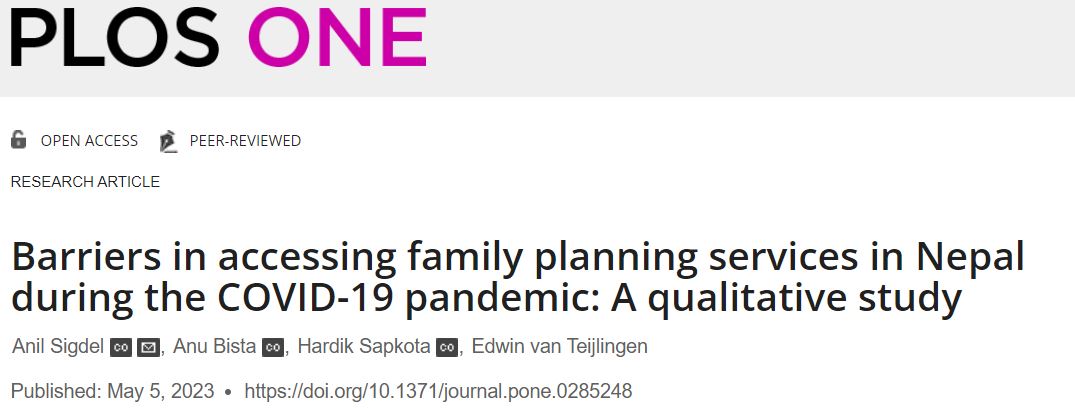 The paper reports that individual level barriers included low self-confidence, inadequate knowledge on COVID-19, myths and misconception related to COVID-19, limited access to family planning services, low priority to sexual and reproductive health services, low autonomy in family and limited financial ability. Family level barriers comprised partner’s support, social stigma, increased time at home with husbands or parents, not accepting family planning services as essential health services, financial hardship due to loss of jobs, and communication with in-laws. Movement restrictions and transportation hindering access, unsecured feeling, violation of privacy, and obstacles from security personnel were the community level barriers and unavailability of preferred choice of contraception, increased waiting time, limited outreach services by community health workers, limited physical infrastructures, the behavior of health workers, stock out of commodities, and absence of health workers were health facility level barriers.
The paper reports that individual level barriers included low self-confidence, inadequate knowledge on COVID-19, myths and misconception related to COVID-19, limited access to family planning services, low priority to sexual and reproductive health services, low autonomy in family and limited financial ability. Family level barriers comprised partner’s support, social stigma, increased time at home with husbands or parents, not accepting family planning services as essential health services, financial hardship due to loss of jobs, and communication with in-laws. Movement restrictions and transportation hindering access, unsecured feeling, violation of privacy, and obstacles from security personnel were the community level barriers and unavailability of preferred choice of contraception, increased waiting time, limited outreach services by community health workers, limited physical infrastructures, the behavior of health workers, stock out of commodities, and absence of health workers were health facility level barriers.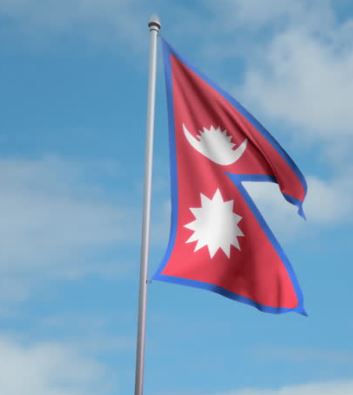
The authors conclude that policymakers and programme managers should consider strategies to ensure continued availability of the full method mix during emergency, particularly since disruptions may go unnoticed and strengthen the provision of services through alternative service delivery channels to ensure sustained uptake of such services in this sort of pandemic.
This is the latest addition to the pool of academic papers published by Bournemouth University academics on the effects of COVID-19 on health care in Nepal or issues related to Nepal [2-11].
Prof. Edwin van Teijlingen
CMMPH (Centre for Midwifery, Maternal & Perinatal Health)
References:
- Sigdel A, Bista A, Sapkota H, van Teijlingen E (2023) Barriers in accessing family planning services in Nepal during the COVID-19 pandemic: A qualitative study. PLoS ONE 18(5): e0285248. https://doi.org/10.1371/journal.pone.0285248
- Mahato P., Adhikari B., Marahatta S.B., Bhusal S., Kunwar K., Yadav R.K., Baral, S., Adhikari, A., van Teijlingen, E. (2023) Perceptions around COVID-19 and vaccine hesitancy: A qualitative study in Kaski district, Western Nepal. PLOS Global Public Health 3(2): e0000564.
- Regmi, P., Dhakal Adhikari, S., Aryal, N., Wasti, S.P., van Teijlingen, E. (2022) Fear, Stigma and Othering: The Impact of COVID-19 Rumours on Returnee Migrants and Muslim Populations of Nepal, International Journal of Environmental Research & Public Health 19(15), 8986.
- Simkhada, P., Tamang, P., Timilsina, L., Simkhada, B., Bissell, P., van Teijlingen, E., Sah, S.K., Wasti, S.P. (2022) Factors Influencing COVID-19 Vaccine Uptake among Nepali in the UK: A Qualitative Study, Vaccine 10(5): 780. https://doi.org/10.3390/vaccines10050780
- Khanal, S.P., van Teijlingen, E., Sharma, M.K., Acharya, J., Sharma, C. (2021) Perceived threats towards COVID-19 pandemic among Nepali migrant workers returned from India, Journal of Health Promotion 9(1):87-99.
- Wasti, SP., Simkhada, P., Magar, S.A., van Teijlingen, E. (2021) Nepalese Health System Response to Fight Against COVID-19 Pandemic, Europasian Journal of Medical Sciences 3(1): 98-104.
- Simkhada, P., Mahato, P., Tamang, P., van Teijlingen, E., Shahi, P. (2020) The Role of Health Promotion during the COVID-19 Pandemic. Journal of Health Promotion, 8:1-4. https://doi.org/10.3126/jhp.v8i0.32964
- Parajuli, R.R., Mishra, B., Banstola, A., Ghimire, B.R., Poudel, S., Sharma, K., Dixit, S.M., Shah, S., Simkhada, P., van Teijlingen, E. (2020) Multidisciplinary Approach to COVID-19 Risk Communication: A Framework and Tool for Individual and Regional Risk Assessment. Scientific Reports 10: 21650
- Adhikary, P., Balen, J., Gautam, S., Ghimire, S., Karki, J., Lee, A.C.K., Marahatta, S.B., Panday, S., Pohl, G., Rushton, S., Sapkota, S., Simkhada, P.P., Subedi, M., van Teijlingen, E. for the Nepal Federal Health System team (2020) The COVID-19 pandemic in Nepal: Emerging evidence on the effectiveness of action by, and cooperation between, different levels of government in a federal system, Journal of Karnali Academy of Health Sciences 3 (3): 1-11.
- Mahato, P., Tamang, P., Shahi, P., Aryal, N., Regmi, P., van Teijlingen, E., Simkhada, P. (2020) Effects of COVID-19 during lockdown in Nepal, Europasian Journal of Medical Sciences 2(2):1-5.
- Tamang, P., Mahato, P., Shahi, P., Simkhada, P., van Teijlingen, E., Amgain, K. (2020) COVID-19 Quarantine: A Key Part of Prevention in Nepal. Journal of Karnali Academy of Health Sciences 3(1):1-14.
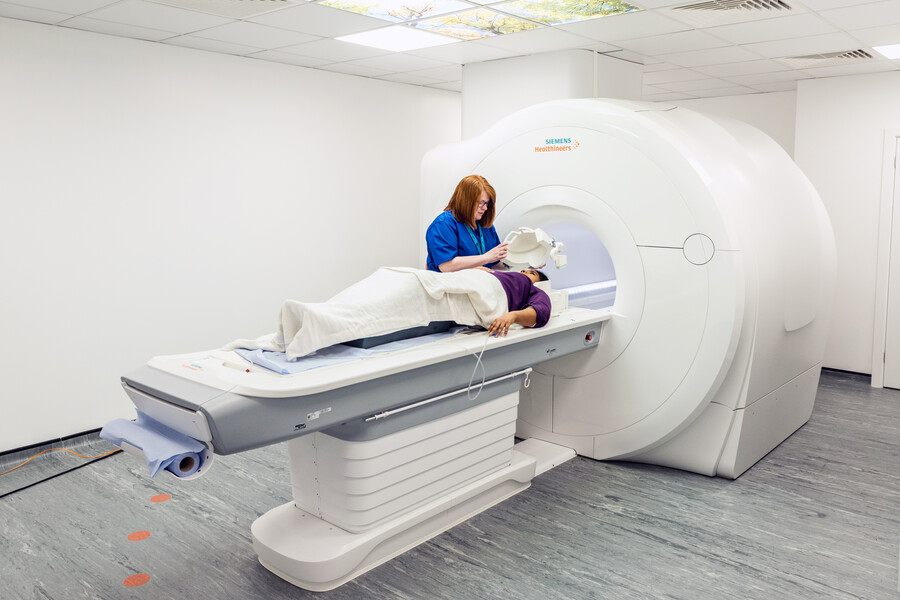 The Institute of Medical Imaging and Visualisation (IMIV) is pleased to announce the launch of the IMIV MRI Research Project Scheme 2023.
The Institute of Medical Imaging and Visualisation (IMIV) is pleased to announce the launch of the IMIV MRI Research Project Scheme 2023.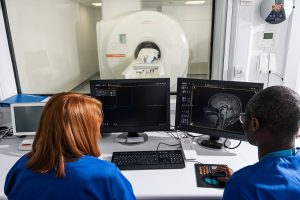 Applications close on Friday 7th July 2023.
Applications close on Friday 7th July 2023. 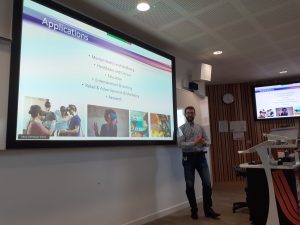
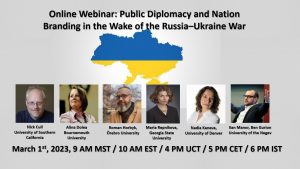
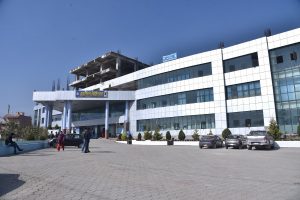 As part of the Erasmus+ exchange, Professors Vanora Hundley and Carol Clark were recently invited to discuss the importance of communication with nurses at
As part of the Erasmus+ exchange, Professors Vanora Hundley and Carol Clark were recently invited to discuss the importance of communication with nurses at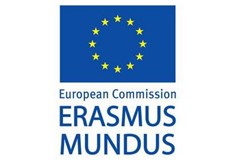 Manmohan Memorial Hospital in Kathmandu, Nepal.
Manmohan Memorial Hospital in Kathmandu, Nepal.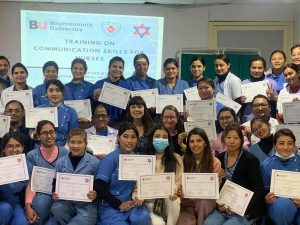 However, all reported that finding time to stop and listen to patients could be a challenge when the hospital was busy. The group participated in a number of exercises, which included role-playing to understand how it feels to be a patient entering the hospital.
However, all reported that finding time to stop and listen to patients could be a challenge when the hospital was busy. The group participated in a number of exercises, which included role-playing to understand how it feels to be a patient entering the hospital.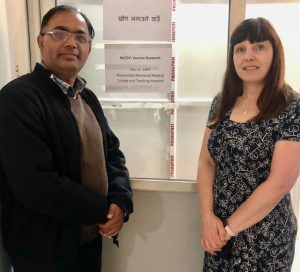 Dr Sujan Marahatta explained the process and discussed how the hospital was contributing to this important research.
Dr Sujan Marahatta explained the process and discussed how the hospital was contributing to this important research.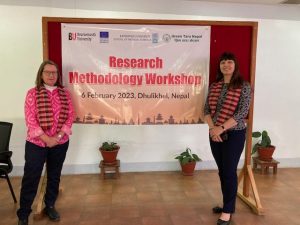
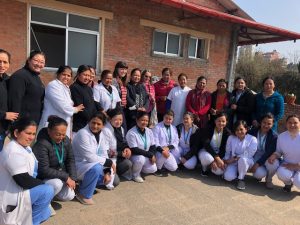



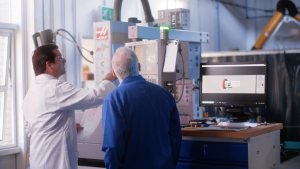
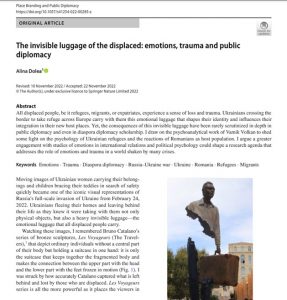
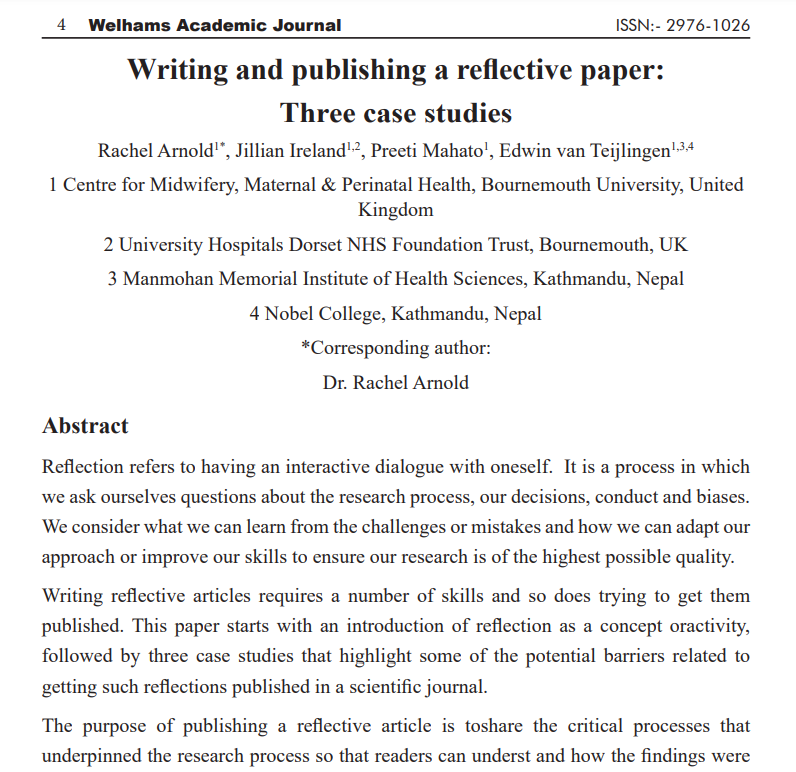

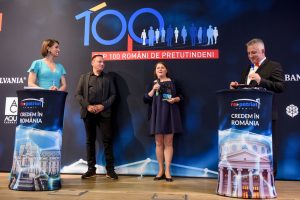
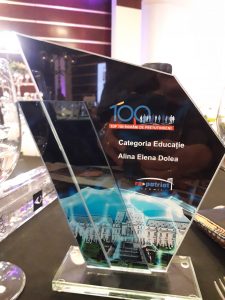
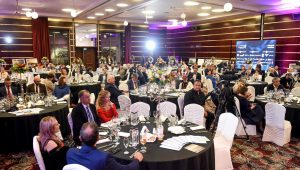
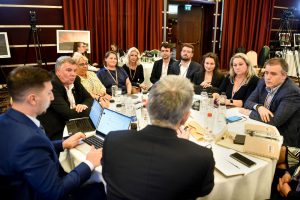
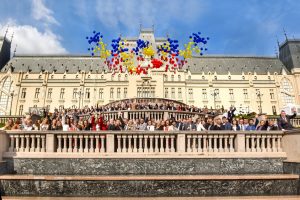
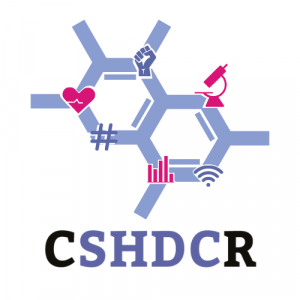 The Centre for Science, Health, and Data Communication Research invites you to our Autumn-Winter 2022-23 research series. These talks are open to the public, and encompass topics on representations of bodies in the media, managing your health data, immersive media, and community responses to suicide.
The Centre for Science, Health, and Data Communication Research invites you to our Autumn-Winter 2022-23 research series. These talks are open to the public, and encompass topics on representations of bodies in the media, managing your health data, immersive media, and community responses to suicide.










 Upcoming opportunities for PGRs – collaborate externally
Upcoming opportunities for PGRs – collaborate externally BU involved in new MRF dissemination grant
BU involved in new MRF dissemination grant New COVID-19 publication
New COVID-19 publication MSCA Postdoctoral Fellowships 2024
MSCA Postdoctoral Fellowships 2024 Horizon Europe News – December 2023
Horizon Europe News – December 2023